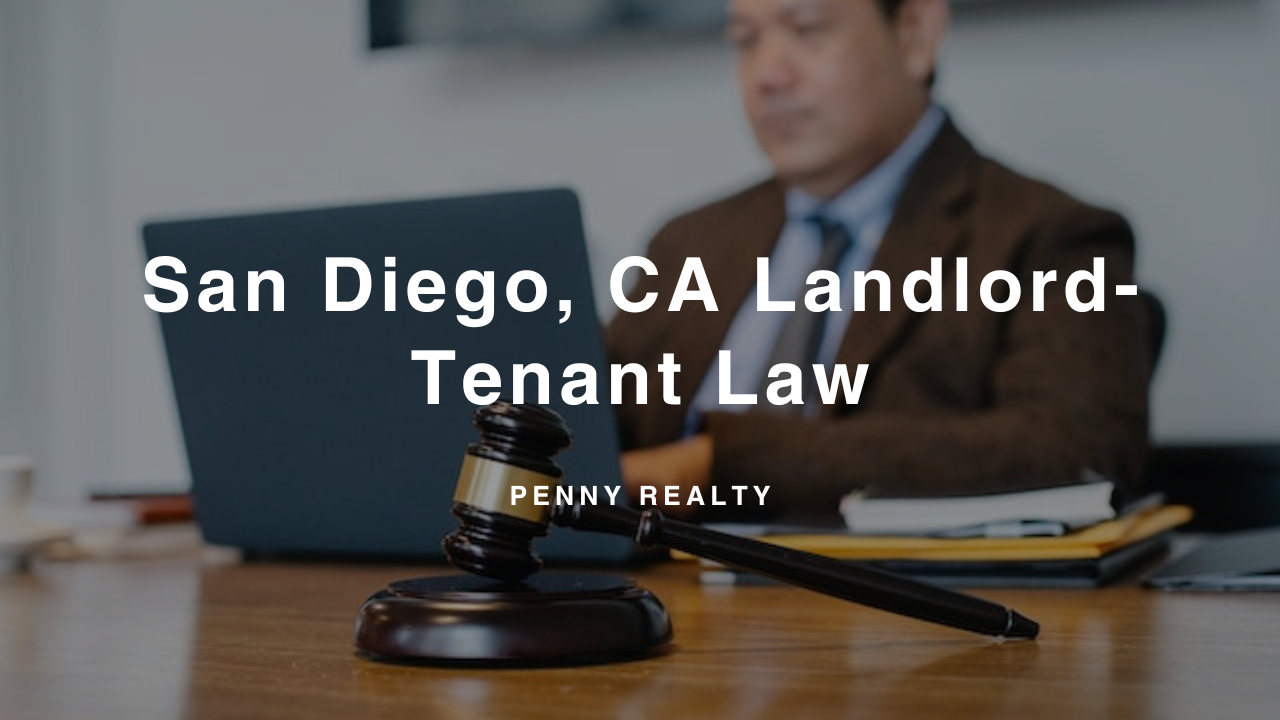Navigating the legal landscape of California landlord tenant laws is crucial for rental owners. Understanding the rights and responsibilities outlined in California landlord tenant laws is essential to maintaining a positive and lawful rental business, including ensuring that residential tenants are clear on their obligations, such as paying rent on time and adhering to the terms outlined in the lease agreement.
Required Landlord Disclosures in California
According to landlord tenant laws, California landlords must provide their tenants, where applicable, with important information such as rent payment details, lease agreements, and disclosures required under the California Tenant Protection Act:
- Lead-Based Paint: Homes constructed before 1978 require their landlords to provide information on lead paint contamination.
- Bed Bugs: Written instructions on how to report bed bug infestations must be given by landlords.
- Mold: Any known mold problems must be documented by landlords, who must also notify renters of this information.
- Utility Use and Payment: Landlords are required to disclose how utility fees are divided among their tenants.
- Asbestos: Disclosure is required for buildings built before 1979 where the landlord is aware of asbestos.
- Sex Offender Registry: It is imperative to apprise potential renters of their entitlement to get information pertaining to the sex offender registry.
- Pest Control: Pertains to areas where pesticides are frequently used.
- Flood Zone: If a property is situated in an area that is known to flood, the landlord is required to notify.
- Smoking Policy: Disclosure is required for properties with specific smoking policies in place
.jpg)
- Demolition Permit: If there are plans to demolish a property that will affect the occupancy, landlords must disclose this.
- Military Ordnance: If the property is located within one mile of a known ordnance location that poses an explosive danger, disclosure is required.
- Meth and Fentanyl: Disclosure applies if the landlord knows of possible drug contamination and remediation hasn't been completed.
- Death: Landlords must disclose non-HIV/AIDS-related deaths on the property within the past three years.
These disclosures are important because they ensure that a prospective tenant is informed about various conditions and policies that may affect their decision on properties.
California Tenant Rights and Responsibilities
As per California law, a tenant has the right to:
- Break a lease agreement early without penalty under specific circumstances such as violations of habitability, military relocation, harassment, or refusal to accommodate disabilities.
- Sublet the rental unit with the landlord's written permission, unless otherwise specified in the lease.
- Not be retaliated against for requesting repairs or reporting violations to authorities.
- Terminate a lease agreement if it is found to be unenforceable, illegal, or void.
- End the lease agreement in case of domestic or sexual violence.
- Receive proper notice for rent increases and entry into the rental unit by the landlord
- Be informed about disclosures such as lead-based paint, bed bugs, mold, and other pertinent property conditions.
.jpg)
As stated in California law, a tenant must:
- Pay rent in a timely manner as outlined in the lease or rental agreement.
- Maintain the rental unit in a clean and habitable condition, following reasonable standards of cleanliness.
- Inform the landlord promptly of any maintenance issues or repairs needed.
- Adhere to the terms of the lease or rental agreement, including rules regarding noise, pets, and other specified conditions.
- Seek explicit written consent from the landlord prior to subletting the rental unit.
- Comply with all applicable laws and regulations related to occupancy and use of the property.
- Allow the landlord reasonable access to the rental unit for inspections, repairs, and emergencies, as specified by law.
California Landlord Rights and Responsibilities
In line with laws, a landlord has the right to:
- Receive rent payments on time as specified in the lease agreement.
Evict tenants for valid reasons, such as unpaid rent or violation of lease terms, while also ensuring proper documentation and adherence to local eviction laws.
- Enter the rental property for essential repairs and inspections provided that an adequate advance notice was given.
- Collect a security deposit, which can be used to cover unpaid rent, repair damages beyond normal wear and tear, or clean the unit after a tenant moves out.
- Expect tenants to maintain the property in a reasonable condition and to not cause significant damage.
- Enforce all terms of the lease or rental agreement, including rules regarding occupancy limits, pet policies, and prohibitions on illegal activities.
.jpg)
- Screen potential tenants, including running credit checks, verifying employment and income, and checking rental history, as long as they comply with fair housing laws and do not discriminate based on protected characteristics.
- Receive proper notice from tenants if they intend to terminate the lease or vacate the unit.
- Charge late fees for overdue rent, provided the fees are reasonable and specified in the lease or rental agreement.
A landlord must:
- Ensure the rental property meets all health and safety codes required by state and local laws.
- Maintain the property in a habitable condition.
- Make repairs in a timely manner after being notified by the tenant.
- Provide appropriate containers for trash and ensure there is regular garbage collection service.
- Provide disclosures about known lead-based paint hazards, bed bugs, mold, and other important information regarding the condition of the property.
- Install and maintain smoke detectors and carbon monoxide detectors as required by law.
- Provide appropriate containers for trash and ensure there is regular garbage collection service.
- Handle the security deposits according to state law
- Adhere to fair housing laws
An Overview of California Landlord-Tenant Laws
- Tenant Privacy and Landlord’s Right to Enter the Property: In accordance with landlord tenant laws in California, landlords are required to give reasonable notice, usually 24 hours in advance, before entering a tenant’s rental unit, except in emergencies.

- Condition, Maintenance, and Repairs: The rental must be maintained in a habitable condition, including adequate heating, plumbing, and electrical systems. Landlords are responsible for making repairs promptly upon receiving notice from the California tenant.
- Housing Discrimination Laws: Landlords are prohibited from treating tenants unfairly based on protected characteristics, including but not limited to race, colour, religion, national origin, gender, familial situation, or handicap.
- Security Deposits: Landlords can collect a security deposit from tenants at the beginning of the tenancy, but it must be returned within a specific time frame after the California tenant moves out, minus any applicable costs for damages that are not considered normal wear and tear.
- Required Landlord Disclosures: In addition to initial disclosures, landlords must inform tenants of any changes in ownership or management that occur during the tenancy period.
- Renters' Rights to Withhold Rent in California: After giving the landlord written notice, tenants have the right to "repair and deduct" or withhold rent if the landlord neglects to make necessary repairs that impact the property's habitability.
- Small Claims Lawsuits in California: If disputes arise between landlords and tenants, both parties can pursue resolution through the small claims court system for amounts up to $10,000.
Conclusion
Understanding the state of California landlord tenant rights is crucial for both landlords and tenants to ensure a fair and lawful rental housing environment. For specific legal advice tailored to your situation, consider consulting with a property management company Penny Realty, Inc.
We can provide expert guidance on compliance with California law, local regulations, tenant relations, property maintenance, and rent collection. We can also help streamline operations, ensure landlords adhere to all legal requirements, including eviction processes, minimizing potential disputes, and maximizing the profitability of rental investments.
Disclaimer: Please note that the information provided in this blog is intended for general guidance and should not be considered as a replacement for professional legal advice. It is important to be aware that laws pertaining to property management may change, rendering this information outdated by the time you read it.



